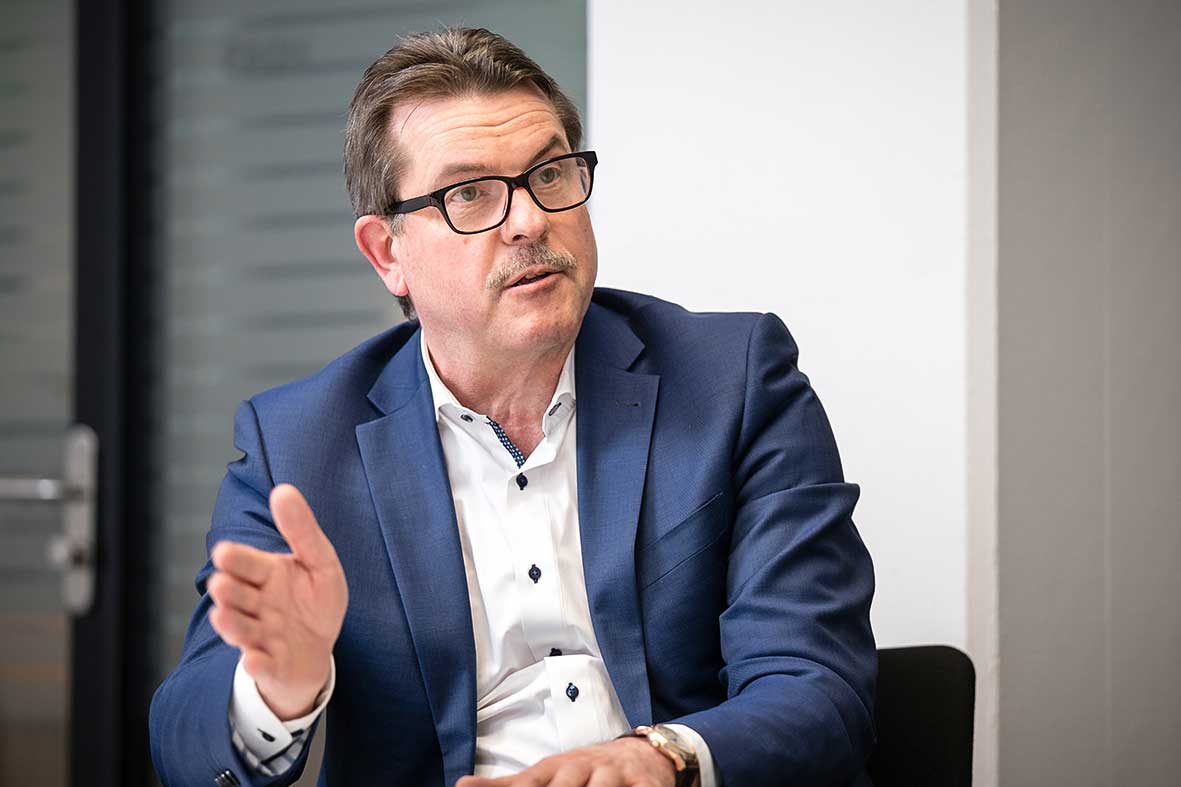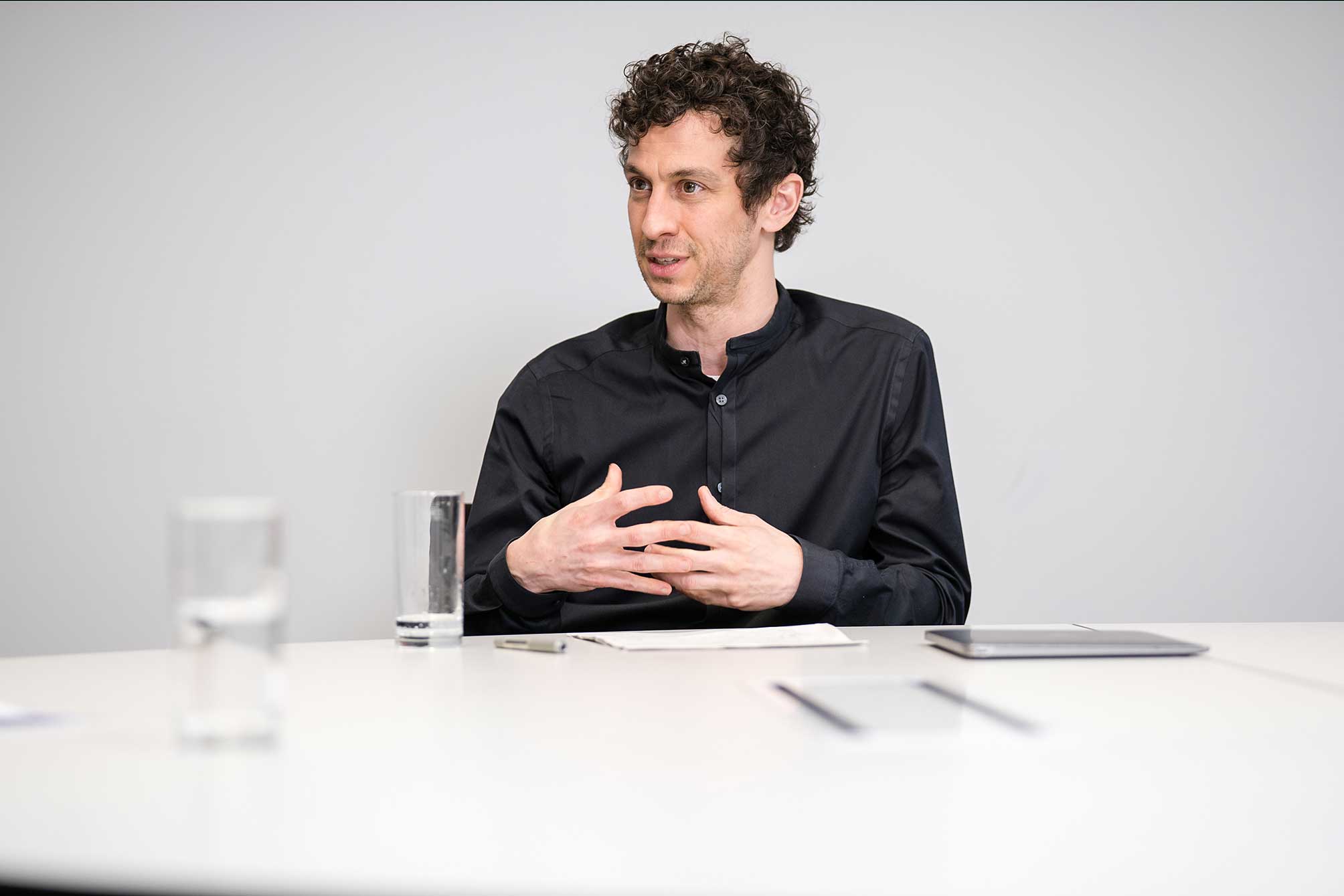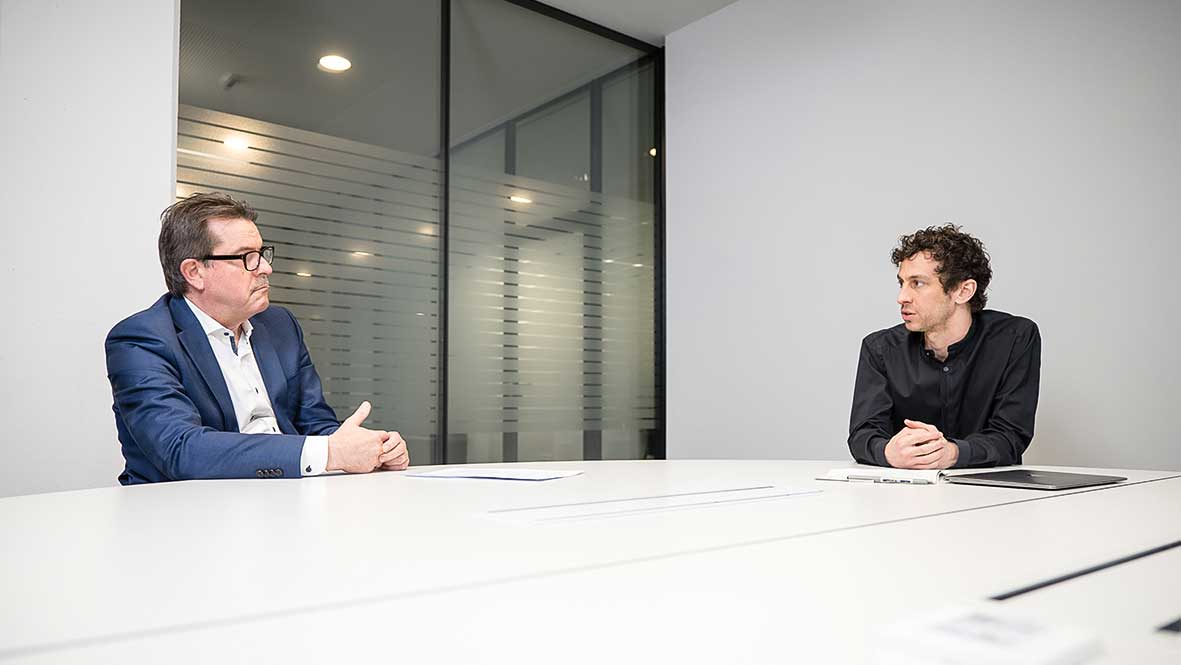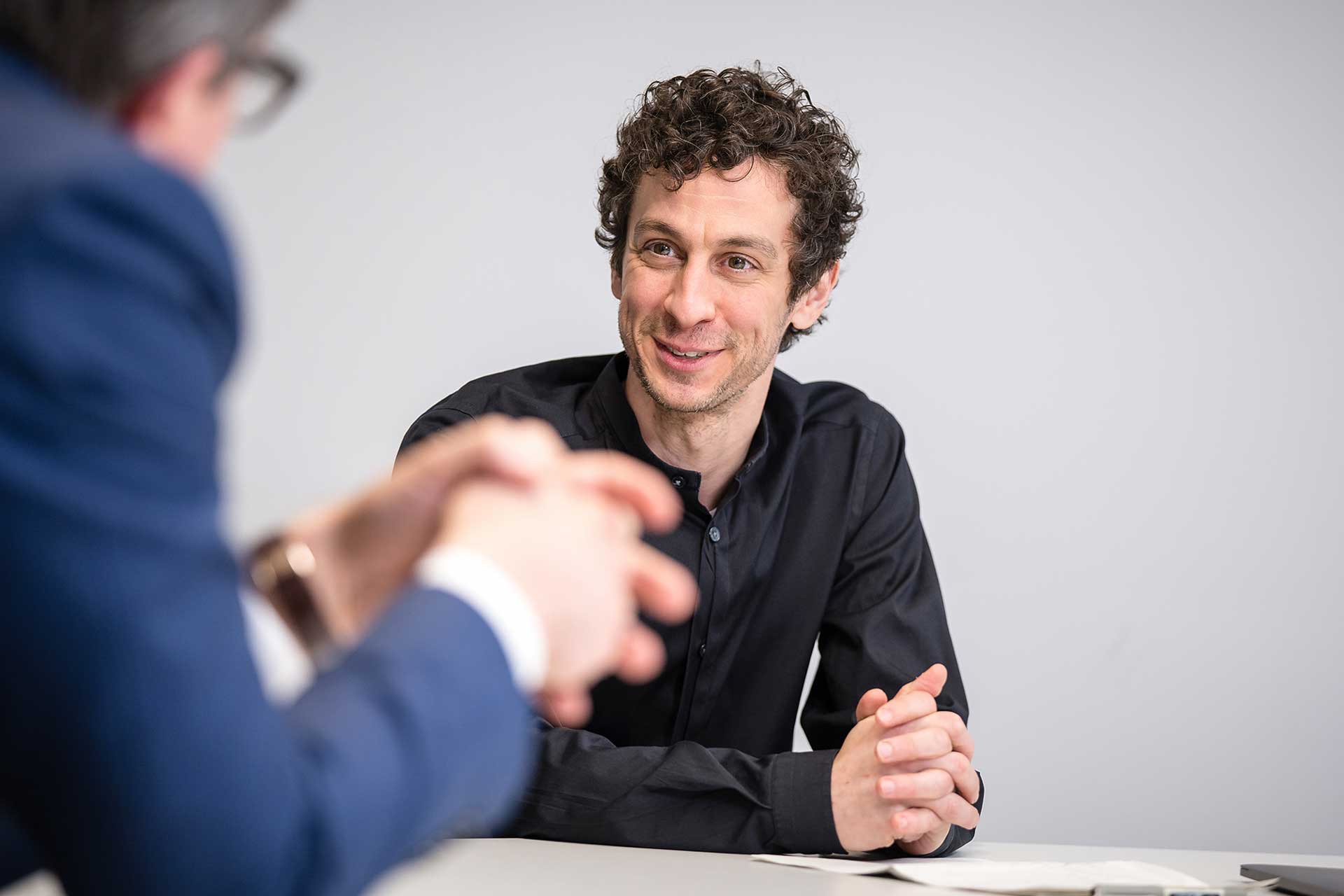Joël Cachelin (JC): "I help companies to consider questions that affect their future. It’s a combination of advice, support, inspiration and presentation. I spend most of my time reading and writing. I research sources, read interviews and carry out fieldwork. I also work with the media and social media."
JC: "What is your primary vision for Swissmedic?"RB: "Over the coming years, we want to make Swissmedic one of the five most digitally modern therapeutic products agencies in the world to ensure that it’s well equipped to face the future. At the same time Swissmedic needs to become synonymous in the public eye with rapid access to safe and innovative therapeutic products and reliable monitoring of these products throughout their life cycle. In the minds of stakeholders in politics and industry, Swissmedic ultimately stands for sovereignty in the healthcare sector."
RB: "To what extent is it actually possible to know what tomorrow holds?"JC: "On a detailed level, it’s not really possible at all. There are too many technical, ecological and geopolitical factors that can affect the situation. My aim is not to foretell the future but rather to identify areas in which the future can be shaped. This helps us to identify the issues that will dominate events. I also look at historical material to identify trends that are already well under way and those that will persist."
JC: "How much freedom do you have personally to shape the future of Swissmedic?"RB: "The degree of freedom varies according to the topic. There are legal provisions that define our mandate comprehensively and constantly for the next five years. The exception here is medical devices, an area in which we need new legislation in the coming years. When you look at the 'how', this is where strategy and anticipation play a role; there is a fair amount of leeway here as long as you’re open-minded and bold. Good examples include our open communication strategy, our forward-looking IT strategy and our digitalisation mindset. There is no getting away from the fact that we are a government agency. For us, the mission always comes first and the vision follows."
RB: "What methods do you base your studies on, and how reliable are your findings?"JC: "I basically use three sources. I read books, I use science fiction for inspiration and I draw on discussions and observations that take place in companies with which I’m involved. This input creates my own conceptual world within which I operate. But I’m not the sort of futurologist who will tell you what’s going to happen in 2070. Neither do I work on the quantitative level. It’s more important for my audience to ask themselves new questions than for them to understand the probability of a trend emerging."
JC: "How many years ahead do you plan at Swissmedic?"RB: "In absolute figures, five years. But at the same time we do try to set the course for the time beyond this planning period and to lay a foundation for sustainable development until at least 2030. One thing is clear: we are approaching a phase of innovation that is likely to last until 2026. This will very probably be followed by a consolidation phase. But overall the situation is, and will remain, dynamic."
RB: "You also research trends. How do you identify tomorrow’s trends?"JC: "I see myself more as a futurologist who is interested in long-term change. Short-term trends tend to revolve around consumer goods and lifestyle. If you want to see what’s happening there, you can look at the big cities in Asia, for example."

"Over the coming years, we want to make Swissmedic one of the five most digitally modern therapeutic products agencies in the world to ensure that it’s well equipped to face the future."
Raimund Bruhin


